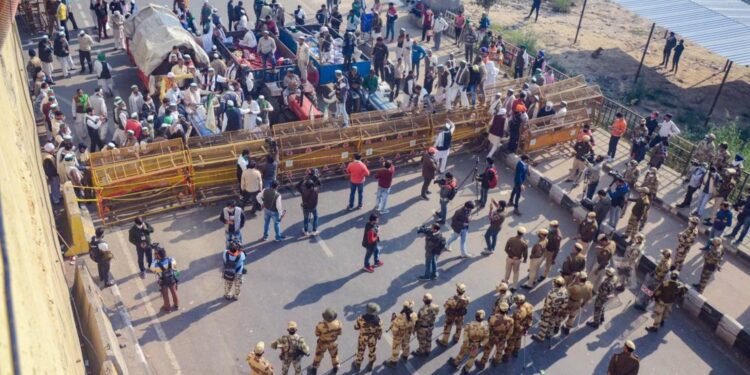On Monday, the Supreme Court of India issued a directive to farmer leader Jagjit Singh Dallewal, urging him not to block highways or cause any inconvenience to the public as part of his protest demanding a legal guarantee for the Minimum Support Price (MSP) of crops. The Court’s order came while it was disposing of a habeas corpus petition filed by Dallewal regarding his alleged illegal detention.
A Bench of Justices Surya Kant and Ujjal Bhuyan made it clear that while peaceful protest is a fundamental right in a democracy, it must be carried out responsibly and without disrupting the normal functioning of society. The Court emphasized that protests should not infringe on public rights, including the free movement of people and vehicles.
The case arose after Dallewal was allegedly removed from his protest site at the Khanauri border, located near Delhi, where he had planned to go on a hunger strike to press for a legal guarantee of MSP for crops. Dallewal had vowed to fast unto death until his demands were met. After being removed from the protest site, he was admitted to a hospital in Ludhiana, a move that Dallewal claimed was forced and amounted to detention.
Dallewal filed a habeas corpus petition, arguing that his hospitalization was a form of unlawful detention aimed at preventing him from continuing his protest. He contended that his right to protest had been violated. However, after being released from the hospital, Dallewal resumed his participation in the protests.
In light of this, the Supreme Court disposed of the petition, taking note of the developments. The Court reiterated that while the right to protest is protected by law, it must be exercised with due regard to public welfare and order. The Court advised Dallewal to conduct his protest peacefully and without causing any public disruption. It emphasized that protests must not be used as a tool to undermine public convenience or create disturbances.
The Court’s decision highlighted the delicate balance between the right to protest and the need to maintain public peace and order. While affirming the right to peaceful demonstration, it made it clear that such activities should not infringe upon the rights of the general public.

















